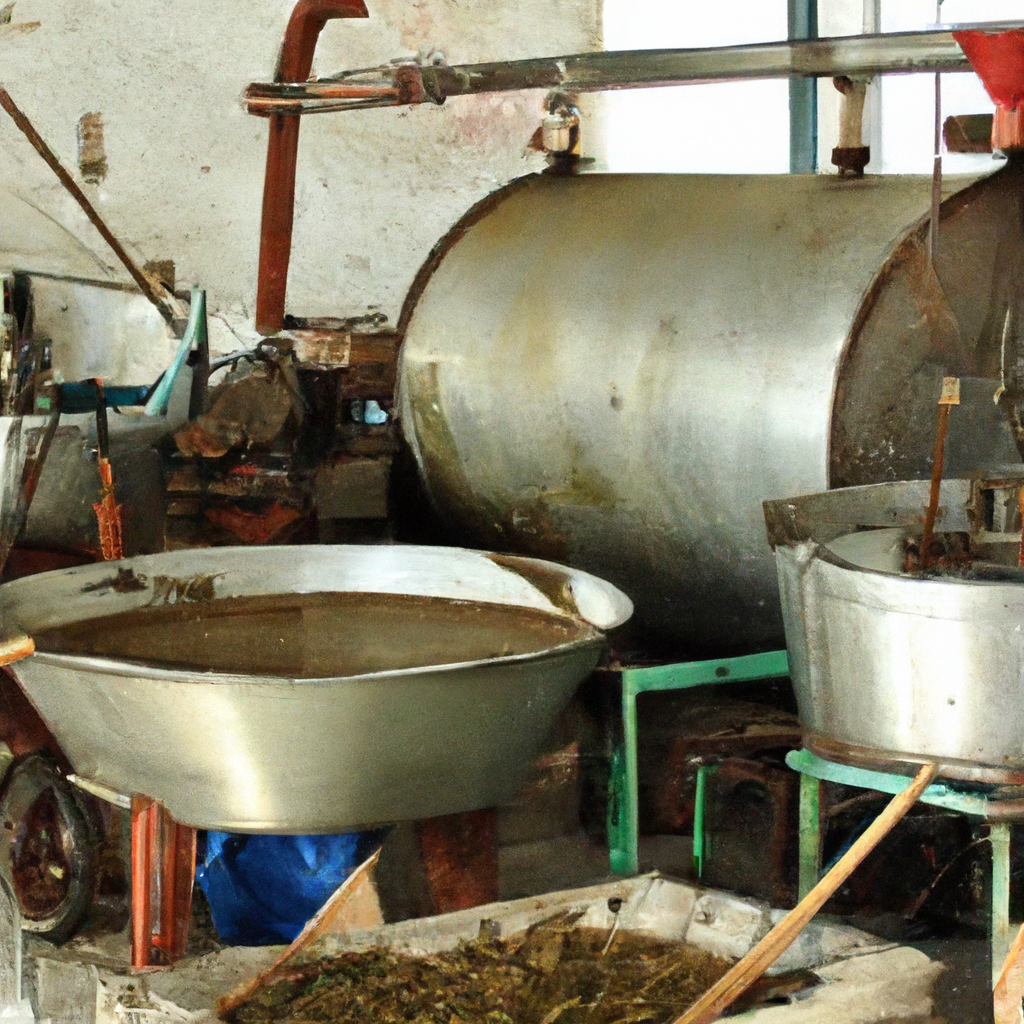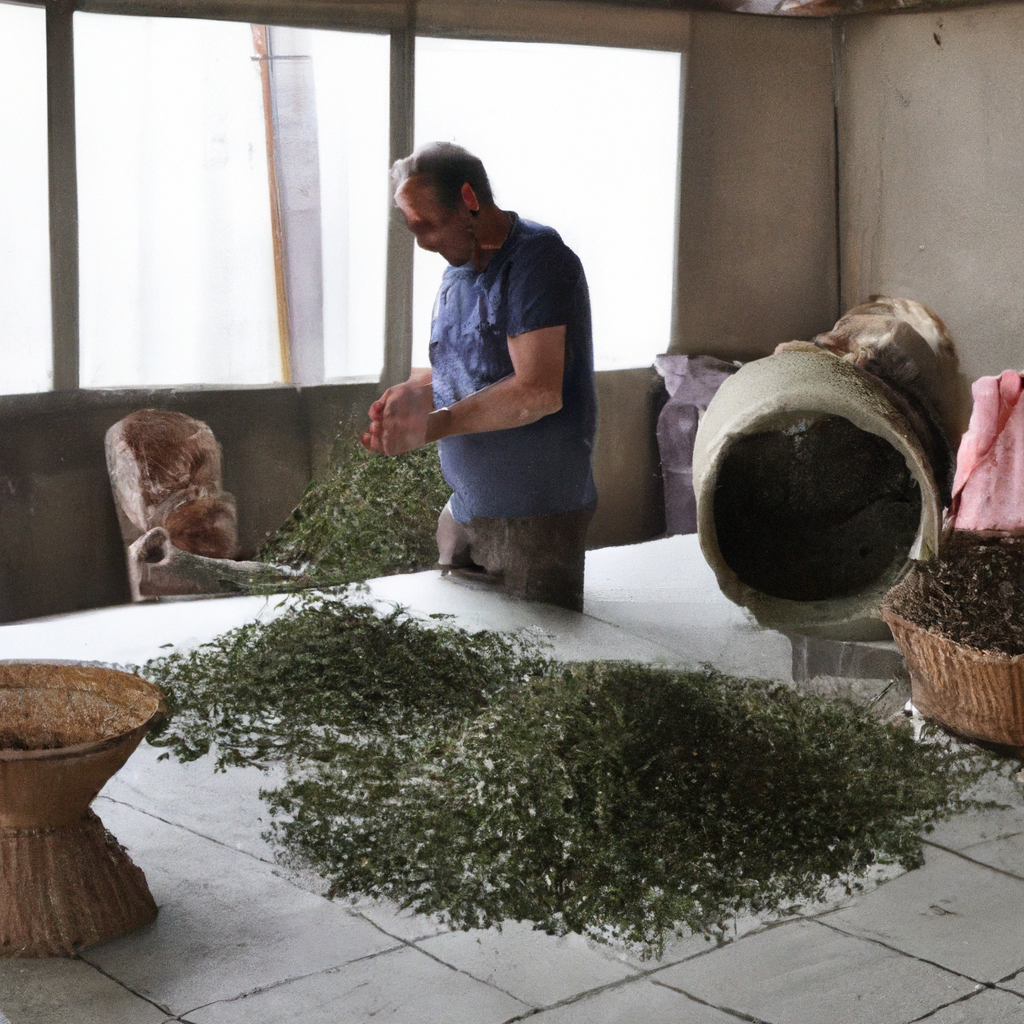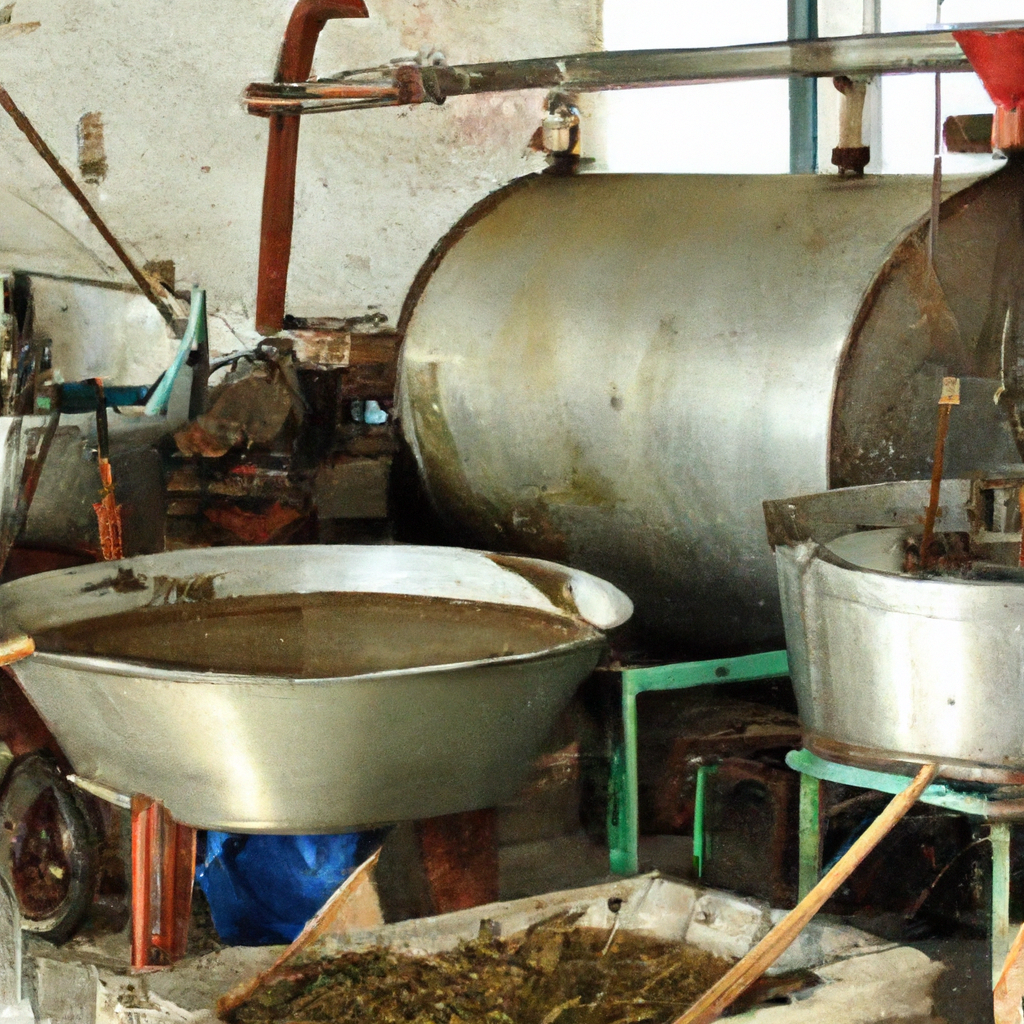Imagine stepping back in time and immersing yourself in the timeless beauty of Lesvos, one of the Greek islands. As you wander through the picturesque landscapes filled with olive groves, you stumble upon a hidden gem – the ancient olive oil making process. In this article, we will take you on a captivating journey, exploring the rich heritage and age-old techniques of producing olive oil in Lesvos. From the traditional press to the meticulous harvesting methods, discover the secrets behind the island’s world-renowned olive oil and experience the magic that has been passed down through generations. Get ready to be enchanted by the fascinating history of olive oil making in Lesvos.
The Olive Oil Making Process
When it comes to making olive oil, there is an intricate and fascinating process involved. This article will take you through each step, from the harvesting of olives to the final product. We will also explore the traditional and modern techniques used in olive oil production, and delve into the role of climate and soil in creating the perfect olive oil. In addition, we will examine the historical significance of olive oil in Lesvos and the efforts being made to preserve traditional methods. We will even touch on the taste and health benefits of Lesvos olive oil, as well as the burgeoning olive oil tourism industry in the region. By the end of this comprehensive article, you will have a newfound understanding and appreciation for the ancient art of olive oil making.
Harvesting the Olives
The first stage in the olive oil making process is the harvesting of the olives. This typically takes place in the late autumn, when the olives have ripened. Traditionally, olives were hand-picked from the trees, ensuring that only the best quality fruit was selected. However, in modern times, mechanical harvesters have become more common, as they allow for a quicker and more efficient harvest. Regardless of the method used, it is important to only harvest olives that are at the optimal stage of ripeness in order to produce the highest quality olive oil.
Sorting and Cleaning the Olives
Once the olives have been harvested, they need to be sorted and cleaned before they can be used for oil production. This involves removing any leaves, branches, and twigs that may have been collected during the harvest. It is essential to eliminate any impurities that could affect the flavor and quality of the olive oil. After sorting, the olives are thoroughly washed to remove any dirt or debris. This step is crucial in ensuring that the olives are in the best possible condition for the next stages of the process.
Crushing the Olives
After the olives have been sorted and cleaned, they are crushed to break them down and form a paste. Traditionally, this was done using stone mills, which consist of a large stone wheel that crushes the olives under its weight. Stone mills are still used today in many small-scale olive oil productions, as they preserve the integrity of the olives and enhance the flavor of the oil. However, modern olive oil producers often opt for mechanical crushers, which can process a larger quantity of olives in a shorter amount of time.

Pressing the Olives
Once the olives are in paste form, they are ready to be pressed to extract the oil. Traditionally, screw presses were used for this purpose. The olive paste was placed in special woven bags, and the bags were then stacked and pressed, allowing the oil to separate from the solids. These days, hydraulic presses are more commonly used in olive oil production. They apply pressure to the olive paste, causing the oil to be released. The use of hydraulic presses allows for more efficient extraction and higher yields of oil.
Separating the Oil
After pressing, the olive oil is separated from the solids and other liquids through a process called centrifugation. This involves spinning the oil at high speeds, causing the heavier solids and water to separate from the oil. After centrifugation, the oil is left in its purest form, ready for further processing and clarification.
Clarifying and Filtering the Oil
The final step in the olive oil making process is the clarification and filtering of the oil. During this step, any remaining impurities or particles are removed to ensure that the oil is clear and free from debris. In traditional methods, this was achieved by allowing the oil to settle and decanting off any sediment. However, modern techniques utilize decanters and filters to achieve a faster and more efficient clarification process. The resulting oil is then ready to be bottled and enjoyed.
Traditional Olive Oil Making Techniques
Lesvos, known for its rich history and tradition of olive oil production, has preserved many traditional methods throughout the years. One such method involves the use of stone mills for crushing the olives. Stone mills provide a gentle and slow process, preserving the delicate flavors of the olives. Another traditional technique is the use of screw presses for extracting the oil from the olive paste. While these methods may be more time-consuming compared to modern techniques, they contribute to the unique characteristics and high quality of Lesvos olive oil. Hydraulic presses are also used in traditional production, providing a higher yield of oil.

Modern Olive Oil Making Techniques
With advancements in technology, modern techniques have emerged in olive oil production. One such innovation is the use of mechanical harvesters, which can quickly and efficiently collect olives from the trees. This allows for a more rapid harvest, reducing labor costs and improving productivity. Another modern technique involves the use of centrifuges to separate the oil from the solids and other liquids. By spinning the oil at high speeds, centrifuges extract clean oil in a shorter amount of time compared to traditional methods. Decanters are also used in modern olive oil production to effectively clarify the oil, removing any remaining impurities and particles.
The Role of Climate and Soil in Olive Oil Production
The climate and soil in which olives are grown play a crucial role in determining the quality and flavor of the resulting olive oil. Lesvos, with its Mediterranean climate, provides the perfect conditions for olive cultivation. The mild winters and hot, dry summers create an ideal environment for olives to thrive. Additionally, the island’s volcanic soil, rich in minerals, enhances the flavor and complexity of the olive oil. The combination of the Mediterranean climate and unique soil composition of Lesvos contribute to the exceptional quality and distinct characteristics of its olive oil.
Historical Significance of Olive Oil in Lesvos
Lesvos has a rich history when it comes to olive oil production, with evidence of its ancient origins dating back thousands of years. Olive oil was not only a staple in the diet of ancient Greeks but also held significant cultural and economic importance. The island of Lesvos, with its abundant olive groves, became a prominent center for olive oil production and trade in ancient Greece. Today, olive oil continues to be a vital part of the local economy and culture, with Lesvos producing some of the finest olive oils in the world.
Preservation of Traditional Methods
Efforts have been made to preserve the ancient techniques and traditions of olive oil making in Lesvos. Cultural organizations and museums play a crucial role in promoting and preserving the traditional methods used in olive oil production. They showcase the history and craftsmanship associated with olive oil making, educating visitors and locals alike about this ancient art form. Additionally, there is an increasing focus on sustainable agriculture, with producers embracing environmentally friendly practices to ensure the longevity of olive oil production in Lesvos.
The Taste of Lesvos Olive Oil
Lesvos olive oil is renowned for its exceptional flavor profiles, which are a result of the island’s unique climate, soil, and traditional production methods. The flavor of Lesvos olive oil can range from mild and buttery to bold and peppery, depending on the variety of olives used and the production process employed. Tasting notes often describe the oil as fruity, with hints of grass, herbs, and even artichoke. Lesvos olive oil pairs exceptionally well with a variety of dishes, from salads and vegetables to grilled meats and seafood.
Health Benefits of Lesvos Olive Oil
In addition to its exquisite taste, Lesvos olive oil also offers numerous health benefits. Olive oil is packed with antioxidants, which help protect the body against oxidative stress and reduce the risk of chronic diseases. The high content of monounsaturated fats found in olive oil is beneficial for heart health, as it can help lower cholesterol levels and reduce the risk of heart disease. Olive oil also possesses anti-inflammatory properties, which can contribute to overall wellbeing and help alleviate symptoms of certain inflammatory conditions.
Olive Oil Tourism in Lesvos
Olive oil tourism has become increasingly popular in Lesvos, as visitors seek to immerse themselves in the rich culture and history of olive oil production. Travelers can explore picturesque olive groves, visit traditional mills, and even participate in the harvest and oil making process. Educational workshops and tours provide a unique opportunity to learn about the ancient techniques of olive oil production, as well as the health benefits and culinary uses of Lesvos olive oil. Olive oil tourism offers an unforgettable experience for those passionate about food, history, and sustainable agriculture.
Conclusion
The olive oil making process is a labor of love, steeped in tradition and ancient practices. Lesvos, with its ideal climate, volcanic soil, and rich history, has established itself as a premier producer of high-quality olive oil. Whether using traditional or modern techniques, the island’s olive oil producers are dedicated to preserving the legacy of this ancient art form. From the taste and health benefits of Lesvos olive oil to the growing popularity of olive oil tourism, the significance and allure of this golden elixir continue to captivate both locals and visitors alike. So the next time you drizzle Lesvos olive oil over your salad or dip a piece of crusty bread into it, know that you are not only savoring a culinary delight but also embracing a centuries-old tradition.
